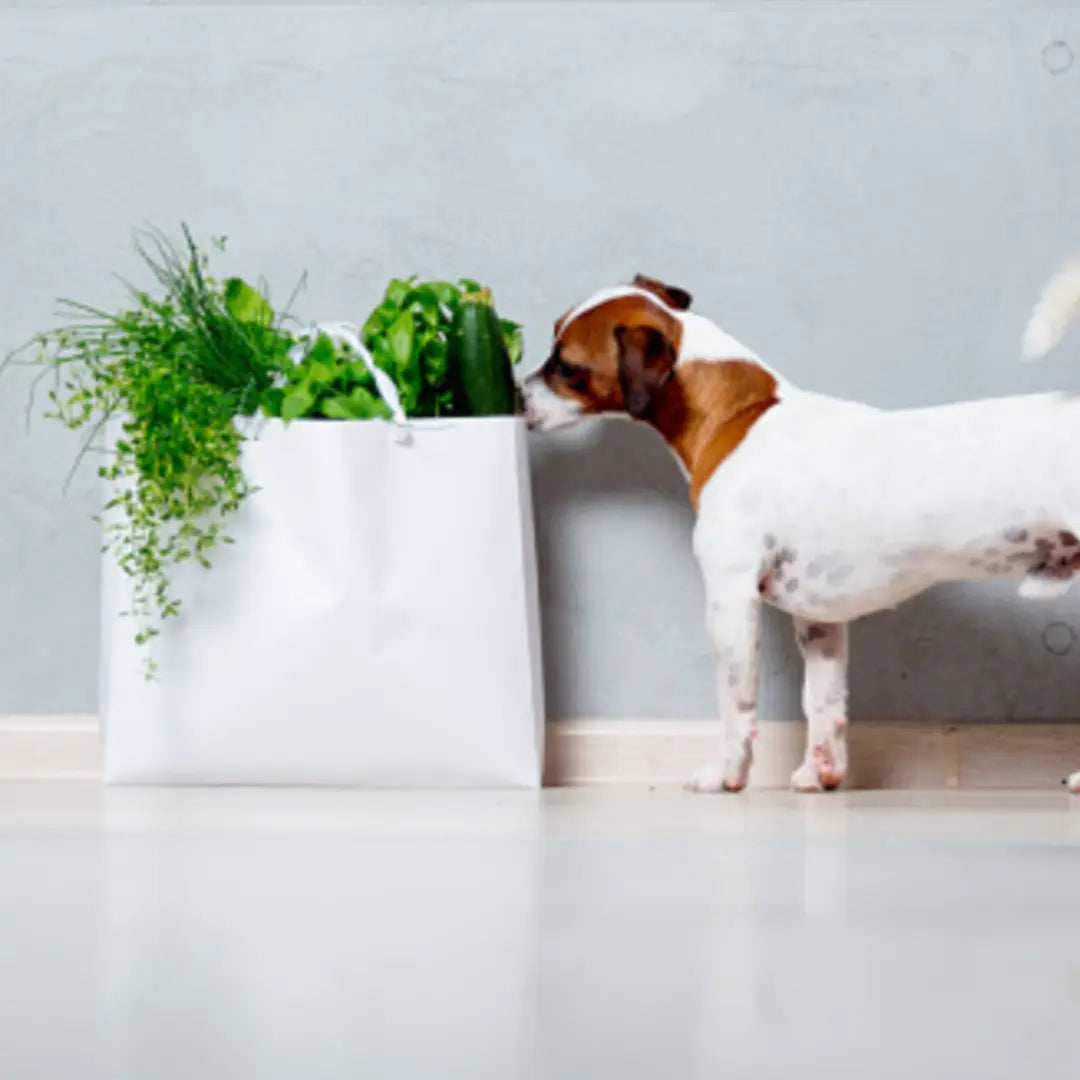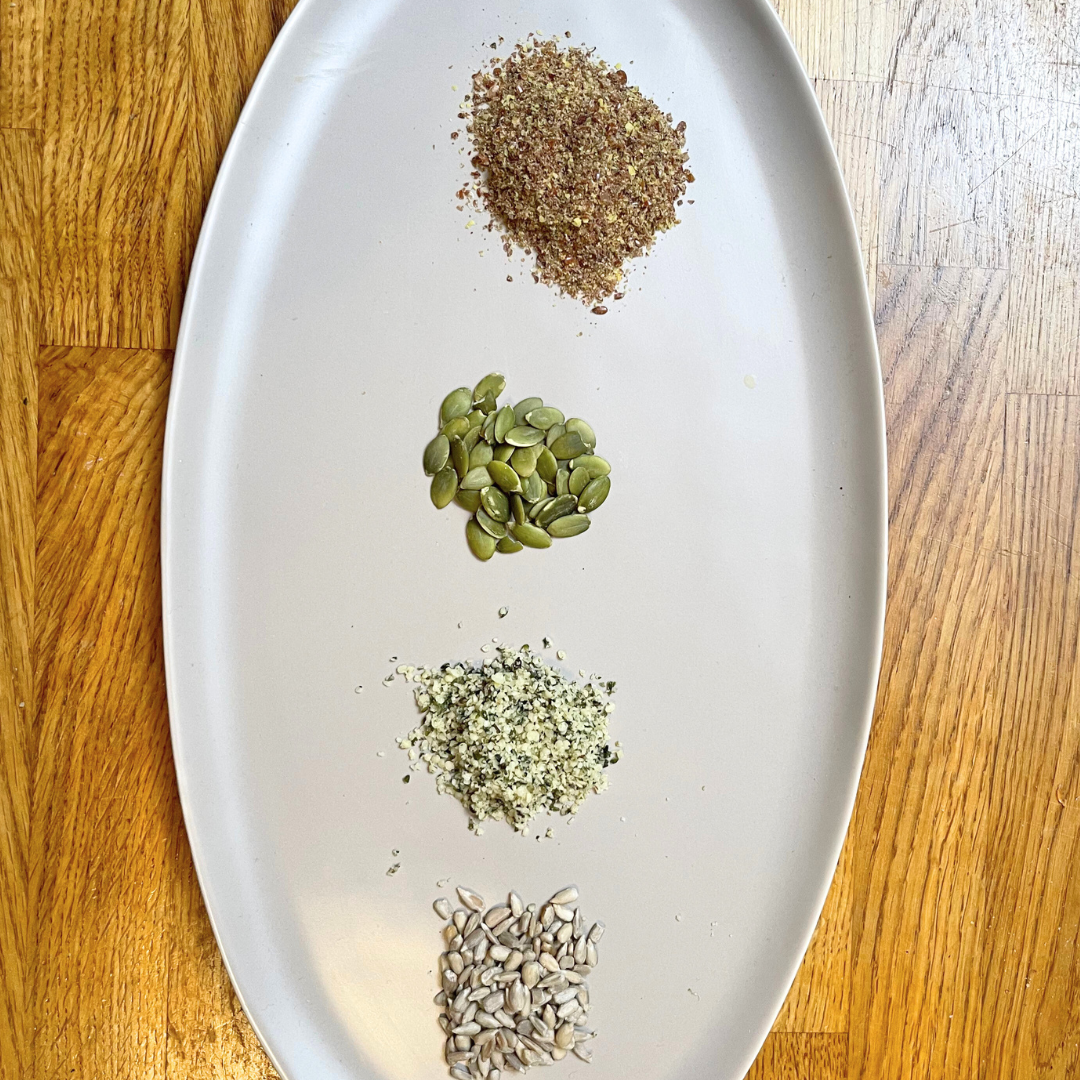As home cooking dog parents, we are always looking for healthy ingredients to add to our pups' homemade dog food or treats. We love to incorporate herbs into our homemade meals, so we want to explore which herbs are safe for dogs, which herbs to avoid and of course, some dog recipes that show you how to use herbs when cooking for your dog.
Is Parsley Good for Dogs?
Parsley is one of the most common herbs used in our meals, and it is a great ingredient to use for your pup too. It freshens breath naturally and is loaded with essential vitamins and minerals like A, C, and K, calcium, and iron, which are great for overall health. And get this - parsley is a superhero when it comes to urinary issues because it has diuretic properties that promote healthy kidney function. Plus, it has compounds that fight inflammation, making it a go-to for arthritis or allergies. As if that wasn't enough, parsley has antioxidant activity that protects your dog's cells and promotes a strong immune system. It's even great for promoting healthy digestion and alleviating digestive discomfort. Dog Child’s Mixed Veggie Meal Mix uses organic dried parsley to make it easy to add.
Check out our Recipe for our Meal Prep Pops for Dogs, which uses parsley as a topper.
Tips for Using Herbs for Your Dog
- Chop Up or Puree - to avoid your dog picking out the herbs, finely chop or puree
- Use Organic Fresh or Dried Herbs when possible in home-cooked meals or treats
- Avoid Herbs with Spices or Salt
- Make Homemade Herb Oil
- Moderation - dogs should only have a small amount of herbs daily - think pinches
Is Basil Safe for Dogs?
Next up is my favorite herb, basil. The question is, will your dog feel the same about basil as you do? The answer is YES! Basil is safe for your dog, and it offers several health benefits. Basil is known to help digestion & boost the immune system. It’s also rich in vitamins, minerals, and antioxidants that can help improve your dog's overall health.
If you’re wondering how to use basil in your dog’s meals or treats, there are several ways you can incorporate it into their diet. You can add fresh or dried basil to their regular meals, mix it into their homemade treats, or sprinkle it on their food as a topping. However, keep in mind that basil should be used in moderation, especially if your dog has never had it before.
Can Dogs Eat Mint?
Mint offers many benefits for dogs, including fresh breath and digestive aid, but it can also keep pesky insects at bay. Mint's naturally calming aroma may even help relieve mild anxiety, leaving your pup more relaxed and comfortable. But mint must be consumed in moderation. Large amounts of mint can cause an upset stomach, diarrhea and vomiting.
Ways to use mint include incorporating fresh mint into your dog’s homemade treats. Another great way to use mints is to create a natural flea repellent spray. Mint is one of the natural ingredients that repel fleas and ticks. Mix one cup of water, one cup of white vinegar, and one cup of fresh mint leaves. Let the mixture simmer for 30 minutes, cool, and strain into a spray bottle. Use this natural flea repellent on your dog's fur to help ward off unwanted visitors.
Check out this recipe to include mint in your dog’s summertime treats! Cucumber Mint Cooling Treats for Dogs
Is Ginger Safe for Dogs?
Ginger is a true wonder herb for dogs, packed with benefits that make it a great addition to their meals. For starters, it’s perfect for those pups who tend to get motion sickness or experience an upset stomach. Plus, the gingerols it contains are anti-inflammatory, which helps with joint pain and arthritis symptoms. And for good measure, ginger also aids in digestion, promotes nutrient absorption, and improves circulation to boost overall health. Its immune-boosting antioxidants will keep your dog healthy and lively, too! You can add small amounts of fresh ginger or dried ginger into homemade treats or your dog’s meals. Just keep in mind that, as with any new food to a dog’s diet, start off with small amounts and watch how they react.
Our Dog Child Essential Nutrient Mix is your all-in-one home cooking supplement to make nutritionally balanced fresh meals at home. It includes ginger as one of its key ingredients. We love ginger so much that it is also included in all our Meal Mixes which make home cooking for your dog simply by just adding ground protein, water and oil.
Is Rosemary Safe for Dogs?
Next up is rosemary for dogs. Rosemary is a herb that is commonly used in cooking and has a fragrant, earthy scent. It contains antioxidants that can help boost the immune system and improve digestion. For dogs, rosemary is generally safe when used in small amounts, but it's important to note that it can be harmful if consumed in large quantities. That's why it's crucial to use it carefully and sparingly in your homemade recipes.
Excitingly enough, rosemary preserves immune health and keeps oral bacteria and digestive issues at bay with its aromatic scent. And did you know that studies link this herb's scent with mental stimulation? It's believed to boost focus and memory in older or trained dogs!
One way to use rosemary in your dog's diet is by adding a sprinkle of dried rosemary to their food. This will not only enhance the flavor profile but also provide health benefits. You can also use fresh rosemary leaves to make a herb-infused oil that can be drizzled over your pup's food. Simply heat up some olive oil or coconut oil in a pan, add some fresh rosemary leaves, and let them infuse for a few minutes. Strain the oil and store it in a bottle to use as needed.
If you're feeling more adventurous, you can also make homemade dog treats using rosemary. One easy recipe is rosemary and cheese biscuits. In a food processor, combine one cup of whole wheat flour, half a cup of grated parmesan cheese, and ¼ teaspoon of dried rosemary. Add in one egg and a quarter cup of water, and blend until the dough is formed. Roll out the dough and cut into shapes, then bake in the oven at 350 degrees for 20 minutes. Your pup will love these tasty treats!
Is Thyme Safe for Dogs?
Like the other herbs discussed, Thyme has several benefits for dogs but it must be consumed in moderation and fed in very small amounts. It has antibacterial, antifungal, and antiseptic properties that can help keep your dog healthy. Thyme is also a great source of vitamins C and K, iron, and manganese which are all essential for good health. These properties make thyme a great natural ingredient to incorporate into your dog's diet. It can help boost their immune system, improve their digestion, and reduce inflammation in their body.
Oregano for Dogs?
Oregano is safe, but must be given sparingly or else it can cause an upset stomach. Remember to feed only a small pinch. You can add tiny amounts to your batch or homemade dog food or if you’re cooking up home made treats.
Is Sage Safe for Dogs?
The answer is mostly yes, but there are some things to keep in mind. Sage has many health benefits, including being an antioxidant, anti-inflammatory, and antimicrobial. However, in large doses, sage can cause digestive issues and even more serious problems for dogs. So it must be given in controlled doses.
Chives for Dogs
Lastly, never feed your dog chives. They are from the onion family and can be toxic.
How to Incorporate Herbs into your Dog's Diet?
Your pup can benefit from fresh or dried herbs in their diet, and both options are perfectly acceptable! Fresh herbs offer tasty flavours and nutritional perks, and dried herbs are also a great choice. Just make sure you use organic and non-toxic herbs. You can sprinkle herbs over their food or mix them into homemade dog treats or meals. Plus, some herbs can be brewed into teas or oils to help your pup relax or to support their immune system. If you're unsure about using herbs directly, don't fret! You can always try herbal supplements specifically made for dogs. These supplements come in different forms like powders, capsules, or liquid extracts. And remember, always choose high-quality supplements, and consult your vet!



